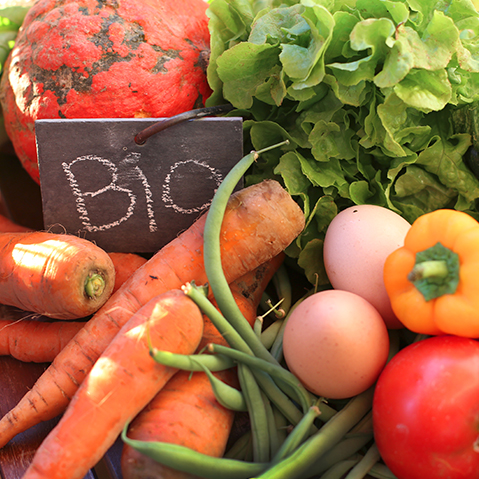Nutrition during pregnancy
Nutrition during pregnancy
Eating During Pregnancy
Healthy eating during pregnancy is the best thing you can do for yourself and for your baby. What you eat is the source of nutrition for both you and for your child, so sensible choices in diet help baby’s healthy development.
Five important tips to eat healthy during your pregnancy
1. Plenty of vitamins and minerals
Dark green vegetables containing vitamin A, iron and folic acid are very important during pregnancy. Vitamin C is found in most fruits and vegetables. This helps your body to absorb iron from food and keeps you and your baby healthy.
2. Get your daily dose of proteins
Proteins form the building blocks of the new life growing in your belly. But if you're pregnant, you too need protein in abundance. Try to eat three to four servings of protein daily. That may seem like a lot, but with a piece of chicken breast, two pots of yoghurt, a few spoonfuls of tofu and an egg you've got it covered.
3. Choose fibre and whole grains
Whole grains such as brown rice, wheat and rye supply B vitamins and minerals including iron, selenium and magnesium. Porridge, a bowl of muesli or wholemeal bread start your morning with the energy you need. The fibre in whole grains helps to prevent constipation, a common problem during pregnancy.
4. Remember to eat enough calcium
Your baby is growing and working hard to build up a strong body. To help a good bone structure and strong teeth, develop, calcium is essential. This is found mainly in dairy products, but also in fish with small bones, such as sardines and herring. By ensuring your diet has enough calcium, you also make sure that your own bone structure and teeth don’t get depleted during pregnancy.
5. Choose fish, rich in omega-3 fatty acids
Fish is a rich source of the omega-3 fatty acids EPA and DHA. These are essential fatty acids, which means the body cannot create them itself. Fatty acids from fish are especially important when you're pregnant. They stimulate the development of the brains and your baby's eyesight. By eating oily fish twice a week you get enough omega-3. It’s ok to eat canned tuna, salmon and herring and sardines are a very good choice.
Vegetarian and pregnant? What to look out for.
Vegetarians can find it more difficult to plan the right diet during pregnancy, but it is perfectly possible. You can meet your protein requirements by eating dairy products like milk, cheese and eggs. Whole grains, beans and meat substitutes such as tofu and tempeh are also a good addition. It is important that, while you're pregnant, you get enough vitamin B, iron and omega-3. Vitamin B-12 is only found in animal products, so you will probably need a supplement. Possibly you also need extra iron and there is a risk of a shortage of omega-3. Discuss the use of dietary supplements with your midwife or GP.
What should you avoid when you're pregnant?
Pregnancy is not a good time to eat raw meat or fish. You should also avoid raw (unpasteurised) milk, cheese made from unpasteurised milk and raw or undercooked eggs. Make sure all fish and meat are cooked right through, to reduce the risk of toxoplasmosis and listeria, conditions that can harm your baby.
Pregnancy and coffee
The addictive boost of coffee comes from its caffeine, and this substance has an effect on your unborn baby. When you drink a lot of coffee, your baby will be awake and active and scientific research shows that too much coffee increases the chance of miscarriage and growth retardation of the baby. In the last three months of pregnancy, the body is less able to break down caffeine. This allows the coffee to stay longer in your blood, meaning your baby will be drinking even more of it. Moderate your coffee consumption and keep it down to a maximum of two to three cups per day.


